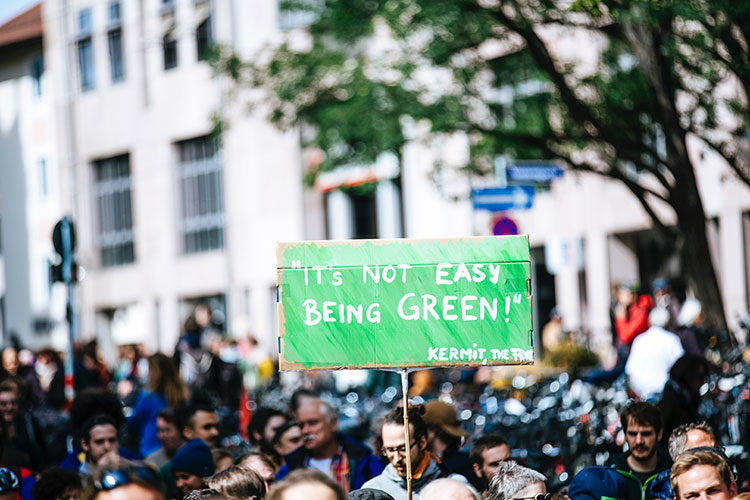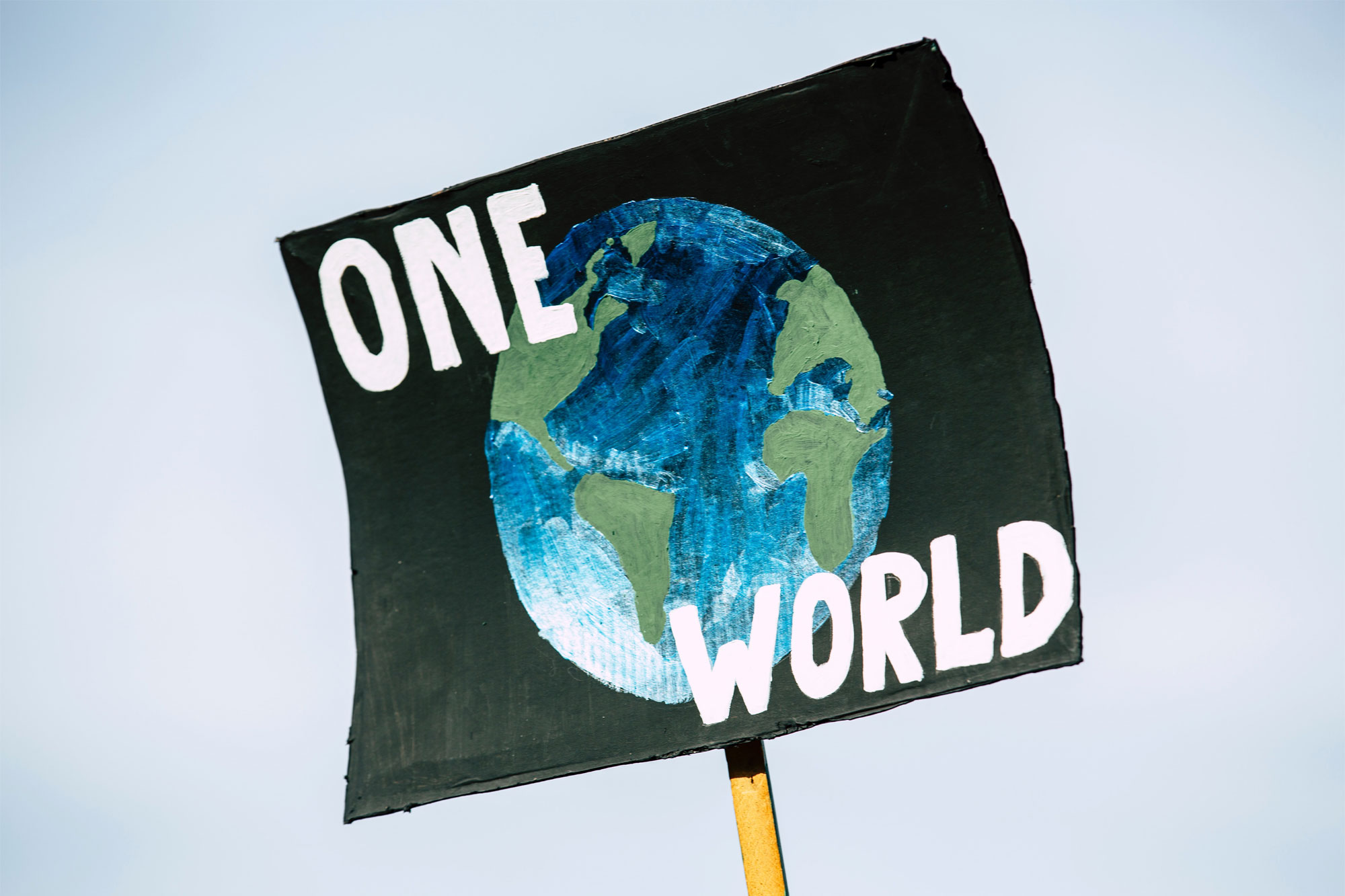Joshua Stevens is studying for a BSc in Human Geography. Here, he reflects on responding mindfully to the climate crisis to generate positivity.
We all know that, as a species, we are facing the greatest challenge of our history. We know that we are taking from the planet, our home, more than we are giving back and that, if this goes on, we will find ourselves without that home.
We know that it is us who are responsible but are not always quite sure what we mean by ‘us’. Is it my fault, your fault, their fault? Or was it the fault of previous generations? And who, then, is responsible for rectifying the problem? This first question of responsibility is one which comes down to the very way we see ourselves in the world.
One thing is clear: we must confront this challenge, however inconceivably enormous. In his anthropological study of how a society might confront a scenario that will lead to the end of life as they know it, philosopher and psychoanalyst Jonathan Lear describes the capacity of our species to conceptualise the world as “finite”, and that “even the concepts with which we understand the world are vulnerable”.
Perhaps the extent of the crisis is so incomprehensible for most of us because it remains a very broad threat: those who will be most impacted by the shifting of the earth’s systems are not usually those who are responsible for causing them. Care must be taken in remembering there is a difference between anxiety about specific events as we begin to feel the effects of climate change, and a more general fear and feeling of helplessness.
The climate crisis provokes anxiety because, as a concept, it threatens the continued existence of our current sense of self with increased uncertainty about the capacity of our planet to continue to sustain us as it has done (Doherty & Clayton 2011). Things will, inevitably, be wildly different in the future. We must accept this fact.

Confronting the problem is not easy: this is equally the case for those who accept it and those who deny its existence. Have a look at which kind of fear lies within you. Sit with your feelings when thoughts about climate change arise or intrude. Should you notice that you are anxious about the future, see if you can notice what areas of climate change might be causing you the most anxiety. Resistance may also arise when being told that change is required to mitigate the impacts of the crisis.
Such a vast, all-encompassing threat to our future way of life, our families and our existence naturally results in a range of reactive emotions. These may range from denial and apathy to guilt, grief and despair. Whatever our worldview or politics, we must notice how issues of climate change provoke such a response in us. Do we notice ourselves pushing it away or taking it all in? How do we feel when confronted by someone who does not share our views – how might we feel if our way of seeing the world was being threatened?
Many of us at the School of Anthropology and Conservation are likely to be in the category of taking on the burden of these issues. We may become fatigued and lack capacity for other parts of our life, becoming, at times, so consumed by what may happen in the future that we forget what is beautiful about the present. After all, it is the world we are living and breathing in right now that we are fighting to save. When you feel overwhelmed, go outside and immerse yourself in the sights, sounds and smells of this world.
Guilt and despair, then, can be just as much a barrier to resolving the issue as denial. By cultivating compassion towards ourselves, others and the world, we begin to cultivate a sense of remorse and caring responsibility which can be embraced without a need for guilt and punishment. By accepting the present, we allow ourselves hope. It is within hope that we can find courage, or the “capacity for living well with the risks that inevitably attend human existence” as Jonathan Lear puts it.
***
Third year Environmental Social Sciences undergraduate Katie Hargrave-Smith took me through the cycle of emotions that we experience coming to terms with the ecological reality facing our species:
“If you asked my parents, they’d tell you that, as a kid, I had the habit of taking the weight of the world on my shoulders: I was determined to battle wrongdoing like all my favourite characters in the books I read. When I grew up, I realised the environment was what I wanted to fight for, but as I fully engaged in the literature on my subject, I slipped back into old habits. I carried the weight of the climate crisis on my shoulders.
“I felt like to be anything but the perfect model of a sustainable person would be hypocrisy, and so every single decision I made was plagued by the idea that I must mitigate environmental damage. However, being sustainable isn’t a simple achievement, it is expensive and time-consuming, and spending every waking hour thinking about climate change was not healthy.

“Optimism became my lifeline, ensuring I engaged with positive news. I understand now that I am not personally responsible and make sure to hold those who are, governments and industry, to account. I am still slowly making small changes to become more sustainable, but not because it is my responsibility to do so, just because I enjoy it.”
***
We must be kind to ourselves. Try to respond rather than react to climate-related news, thoughts, and feelings. The future will always be uncertain, but it is more courageous to have hope than to live in despair.
UKC Mindfulness is a student-led society which runs free drop-in sessions for University of Kent students on Zoom on Wednesdays between 13:00 and 14:00 and again between 17:00 and 18:00. These sessions involve a mixture of guided meditation led by our mindfulness instructor Lorraine and opportunities for discussion of what we noticed in the practice.
References:
- Lear, J. (2006) Radical hope: ethics in the face of cultural devastation. Harvard University Press: Cambridge, MA.
- Doherty, T.J. & Clayton, S. (2011) ‘The psychological impacts of climate change’, American Psychologist, 66(4), pp. 265-276.

